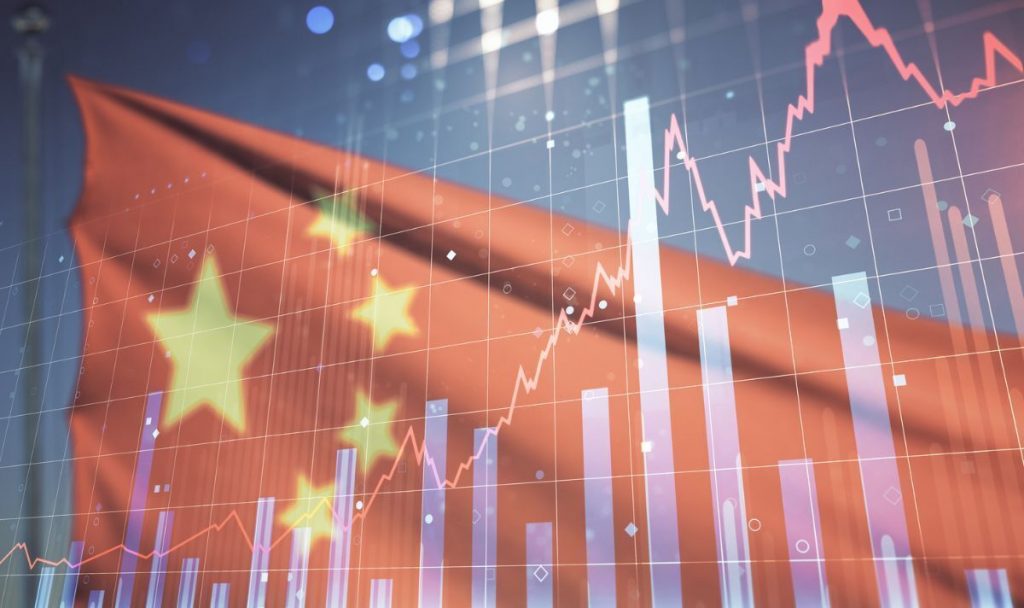
Today is the first day of the Year of the Rabbit, which marks the start of the Chinese Lunar New Year.
It comes at a time when China’s political and economic future is hanging in the balance, as the country reopens after strict Covid lockdowns.
China was the world’s star economy at the start of the millennium but it has struggled lately as debt soars, growth slows and the country’s property bubble threatens to burst
Premier Xi Jinping has scared off many Western investors by his increasingly authoritarian rule, which included a crackdown on once booming tech giants such as Alibaba and Tencent, and the country faces other problems, too.
China’s booming population has now started to fall a decade earlier than expected, triggering a demographic timebomb that could see the country grow old before it grows rich.
It shrank by 850,000 people in 2022 to 1.41billion, according to the National Bureau of Statistics, and this will continue as the fertility rate refuses to rise despite the scrapping of the notorious one-baby rule.
Despite this, many analysts reckon China could be the best investment opportunity of 2023.
Rebecca Jiang, co-manager of investment fund JPMorgan China Growth & Income, is optimistic about China’s long-term economic prospects. “It continues to be bolstered by the strong entrepreneurial ethos of China’s private businesses and growing demand from the country’s burgeoning middle class.”
She sees the rolling back of China’s zero-Covid policy as a catalyst for recovery and expects economy activity to accelerate as pent-up demand is released.
China is reopening faster than many expected, said Sophie Earnshaw, co-manager of Baillie Gifford China Growth. “Although economic data may remain volatile for the next quarter or two, China is likely to be one of very few major economies where growth could accelerate in 2023.”
Elizabeth Kwik, co-manager of Abrdn China, said Chinese consumers are hungry to spend the savings they built up while locked indoors. “The stars are aligned for a meaningful recovery in growth, driven by consumption.”
Fund managers are paid to be upbeat but there are both positives and negatives about investing in China, said Darius McDermott, managing director of investment platform FundCalibre.
“The positives are that Chinese is reopening the economy, rolling back restrictions on property borrowing and relaxing its aggressive policy towards tech companies, which will all help fuel economic growth. President Jinping has also scaled down his rhetoric towards Taiwan.”
READ MORE: UK investors pile in as ‘world’s best stock market’ nears record high
Another plus is that shares look “screamingly cheap” after two years of crashing prices, with the China MSCI stock market index falling 21.72 percent in 2021 and another 21.93 percent last year.
McDermott expects China to outperform India over the next five years but says there are potential negatives, too.
“We still cannot completely discount the possibility of a Putin-like invasion of Taiwan, despite the danger of mass sanctions and the crippling of the economy.”
Jinping has also surrounded himself by “Yes men”, which can lead to rash and unpredictable decision making that scares investors away.
Another issue is that the Chinese population is not just shrinking, it is also getting older, McDermott added. “This will put more strain on the government which is already struggling to meet rising healthcare costs.”
McDermott recommends three funds that investors can buy and hold tax-free inside their stocks and shares Isa: Invesco China Equity, JP Morgan China Growth & Income, and for those who want wider exposure to the region, Jupiter Asian Income.
The rabbit is seen as a tame and tender animal, but the Chinese stock market is a much more turbulent beast. Only invest as part of a balanced portfolio, and make sure you understand and accept the risks.

 Latest Breaking News Online News Portal
Latest Breaking News Online News Portal




